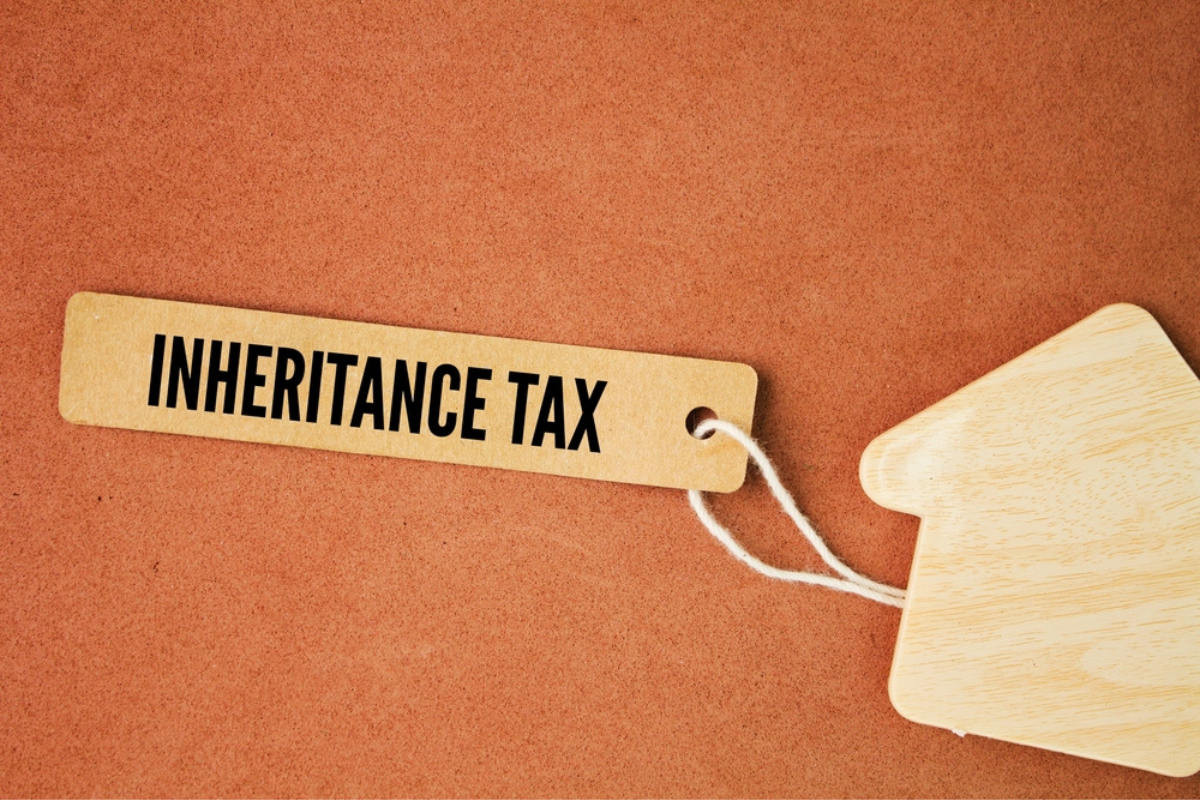Adulting, Made Easier – Stories & Straight Talk
Quick reads, helpful tips, and honest breakdowns of what you need to know.
Featured Posts
Inheritance Taxes Explained: What Really Matters
Understanding how different inherited assets are taxed can make a big difference in how much your beneficiaries actually receive. Smart planning now can help minimize their tax burden later. Read more…
The Hidden Tradeoffs of Lady Bird Deeds
A Lady Bird Deed can be a smart way to protect your home and make things easier for your family but it’s not a full estate plan by itself. Knowing when this tool works (and when you need more than just a deed) is what makes the real difference. Read more…
Your Debt After Death: What Your Family Needs to Know
Many people worry about leaving debt behind for their loved ones but what actually happens to debt after death isn’t as simple (or as scary) as most people think. Learn how it really works and what your family needs to know. Read more…
Aging and Care Planning: Where You’ll Live and How You’ll Pay for It
Many people worry about leaving debt behind for their loved ones but what actually happens to debt after death isn’t as simple (or as scary) as most people think. Learn how it really works and what your family needs to know. Read more…
Why Assets End Up Unclaimed and How to Keep Yours From Being One of Them
Every year, billions of dollars end up sitting with state governments, unclaimed, forgotten, and completely avoidable. Learn how proper estate planning ensures what you’ve worked for doesn’t get lost in the shuffle. Read more…
When Grief Meets Court Delays: Inside the Probate Process
Probate can slow everything down—money, property, and even basic answers, right when your family needs clarity the most. Read more…
Your Belongings After You’re Gone: What Your Family Needs to Know
You’ve spent a lifetime building a home full of memories, meaning, and things you care about. Without the right plan in place, those same items can quickly become overwhelming for the people you love. Read more…
Wills and Trusts: What Works Best for the People You Love
Choosing between a will and a trust isn’t just a legal decision, it’s one that shapes how smoothly things go for the people you love. Learn what actually matters so your plan works in real life, not just on paper. Read more…
The Power of a Family Mission Statement
You already know you should have a will or a trust. But here’s the real question: have you ever talked with your family about why your money exists in the first place?
A simple family mission statement can be the difference between wealth that supports connection and wealth that quietly creates conflict. When values are clear, money is more likely to do what it’s meant to do—support the people you love, not divide them. Read more…
Retirement Savings Check: What You Need to Know Now
SECURE Act 2.0 shook up the retirement planning rules and if you haven’t adjusted, your loved ones could pay the price. Learn what changed, who it impacts, and why smart planning now makes all the difference later. Read more…
Gone Too Soon: What a Tragic Death at 39 Teaches Us About Planning Ahead
Michael Duarte’s sudden passing at just 39 is a gut-check reminder that life doesn’t give warnings and neither does loss. That’s exactly why having a plan in place matters if you want the people you love protected when the unthinkable happens. Read more…
The Hard Truth About Caring for Parents And How Planning Makes It Easier
Caring for aging parents with siblings can turn even the tightest families into battlegrounds. The stress, the decisions, the “who’s doing more” conversations, it adds up quickly. Learn why this happens, and how planning ahead now can spare your kids from the same emotional and logistical tug-of-war someday. Read more…
The White Elephant No One Wants: A Full-Blown Family Feud
Think your family’s White Elephant gets competitive? Try no estate plan, suddenly they’re not fighting over a singing fish, they’re battling it out over Dad’s classic car.
Your legacy deserves better than holiday-level chaos. Here’s why planning now keeps the peace later…
Holiday Tables + Tough Topics: How to Talk Estate Planning Without Killing the Mood
Holiday gatherings: the ideal moment to talk about what actually matters—your people, your values, and how to protect them. Yes, even when the topic is death and money. Read more…
Estate Planning Standoff? Here’s What to Do When Your Spouse Says “Not Yet.”
One spouse wants clarity and protection. The other wants to avoid “the paperwork.” Classic. Here’s how to bridge the gap without losing your mind or your future peace. Read more..
Service, Sacrifice & Strategy: Estate Planning That Honors Military Families
Veterans Day reminds us not only to honor those who’ve served but also to recognize the unique needs of military families when it comes to estate planning. From survivor benefits to military pensions and deployment considerations — these plans require a little extra strategy and a lot of heart.
Learn how to protect your loved ones and the legacy you’ve worked so hard to build. Read more…
Build It. Keep It. Pass It On: Smart Planning for Generational Wealth
Building generational wealth isn’t just about investing smarter — it’s about planning smarter. It takes rethinking how you pass on what you’ve built, how you teach your kids about money, and how you protect your legacy for the long run. Read more…
Building a Life Together? Make Sure the Law Doesn’t Tear It Apart
Being unmarried doesn’t mean being unprotected but without the right estate plan, that’s exactly the risk you run. The law won’t automatically give your partner the rights you probably assume they’d have. Want to make sure they’re cared for and not cut out? That takes planning. Read more…
Estate Planning Awareness Week: Protecting Your Family Is the Ultimate Love Language
It’s Estate Planning Awareness Week: Let’s be real—estate planning isn’t just about papers in a drawer. It’s about love, clarity, and making life easier for the people you care about most. Done right, it’s the greatest gift you can give your family. Read more and see why planning now is the ultimate act of adulting (and love). Read more…
Estate Planning Isn’t a Transaction (It’s a Transformation)
Too many estate plans fail because they start with a cookie-cutter, “sign here” meeting. That’s not planning, that’s paperwork. An Estate Planning Session flips the script. It’s not about documents in a drawer; it’s about creating a plan packed with meaning, clarity, and real value for you and everyone you love. Read more…




















